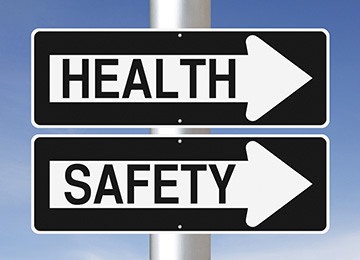Harrisburg, PA – Acting Secretary of Health Alison Beam encouraged Pennsylvanians to take steps to decrease their risk of getting Sexually Transmitted Diseases (STDs), including getting tested regularly to stay healthy.
“Sexually transmitted diseases are serious diseases that impact many Pennsylvanians each year,” Acting Secretary Beam said. “It is essential that all residents are aware of the risks and dangers associated with STDs. Many of these diseases can be easily diagnosed and treated, which is why we encourage all residents to talk to their doctor about getting tested so we can further prevent diseases and keep our residents healthy.”
Early syphilis in Pennsylvania is currently at the highest rate in more than 20 years. Over the last five years, early syphilis reported in women of child-bearing age (women aged 15 to 44) increased 114 percent, from 78 cases in 2015 to 167 cases in 2019. Pregnant women should be screened at first and third trimester because of the sharp increase in the number of babies born with the disease in the United States. Nationally, cases of congenital syphilis increased by 185 percent between 2014 and 2018. In 2019, five congenital syphilis cases were reported in the state of Pennsylvania, following seven cases reported in 2018. These reported cases of congenital syphilis in the state represented the highest number of cases in more than 25 years.
A person with syphilis generally has a sore or sores at the initial infection site. These are usually (but not always) firm, round and painless. As the disease progresses, individuals may develop a skin rash, swollen lymph nodes and fever. The signs and symptoms of syphilis can be mild and may not be noticed, which is why it is important to regularly get tested. Untreated syphilis in pregnant females can negatively impact their developing baby, leading to birth defects and death of the baby if left untreated.
Individuals under age 30 in Pennsylvania accounted for:
- 44% of the reported early syphilis in 2019;
- 68% of the reported gonorrhea in 2019; and
- 85% of the reported chlamydia in 2019.
Reportable STD data can be found on the Department’s website.
The STD program’s primary mission is to prevent and intervene in the transmission of sexually transmitted diseases. The program strives to ensure a quality, professional and client centered approach to individuals seeking STD related health care. Part of that work includes partnering with local health care providers at free and confidential STD clinics which exist across the state.
If you get an STD, you’re more likely to get HIV than someone who is STD-free. Being infected with an STD increases the risk of getting HIV.
You can lower your risk for getting STDs by:
- Choosing one partner and agreeing to be sexually active only with each other. It is still important that you and your partner get tested for STDs and HIV, and share your test results with one another before having sex;
- limiting the number of people with whom you have sex, if you do have more than one partner;
- Using latex condoms and dental dams the right way every time you have sex; and
- Abstinence: The most reliable way to avoid infection is to not have sex (i.e., anal, vaginal or oral).
For more information about STDs and the data associated , visit the Department of Health website at www.health.pa.gov or follow us on Facebook and Twitter.





